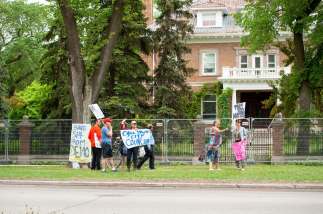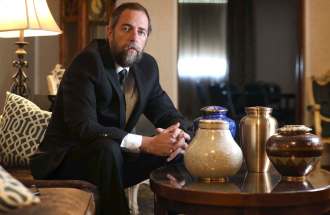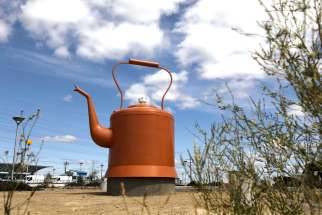Unclaimed ashes abound at funeral homes
Read this article for free:
or
Already have an account? Log in here »
To continue reading, please subscribe:
Monthly Digital Subscription
$0 for the first 4 weeks*
- Enjoy unlimited reading on winnipegfreepress.com
- Read the E-Edition, our digital replica newspaper
- Access News Break, our award-winning app
- Play interactive puzzles
*No charge for 4 weeks then price increases to the regular rate of $19.00 plus GST every four weeks. Offer available to new and qualified returning subscribers only. Cancel any time.
Monthly Digital Subscription
$4.75/week*
- Enjoy unlimited reading on winnipegfreepress.com
- Read the E-Edition, our digital replica newspaper
- Access News Break, our award-winning app
- Play interactive puzzles
*Billed as $19 plus GST every four weeks. Cancel any time.
To continue reading, please subscribe:
Add Free Press access to your Brandon Sun subscription for only an additional
$1 for the first 4 weeks*
*Your next subscription payment will increase by $1.00 and you will be charged $16.99 plus GST for four weeks. After four weeks, your payment will increase to $23.99 plus GST every four weeks.
Read unlimited articles for free today:
or
Already have an account? Log in here »
Hey there, time traveller!
This article was published 09/08/2019 (2316 days ago), so information in it may no longer be current.
Local funeral directors say their storage spaces for cremated remains are getting cramped due to an increase in the number of Manitobans procrastinating the pick-up of their loved ones.
Close to 100 boxes of unclaimed ashes — some as old as 21 years — are kept in a private room accessible only to personnel at Voyage Funeral Home and Crematorium in Elmwood.
And according to general manager Michael Vogiatzakis, 20 of the boxes are from this year alone.
“Every one of those boxes in there is a person. And for me as a funeral director, it’s kind of heartbreaking to see somebody’s mom or dad or brother or sister or son in a room with a bunch of other cremated remains not being attended to,” Vogiatzakis said.
“I think we all deserve a dignified burial.”
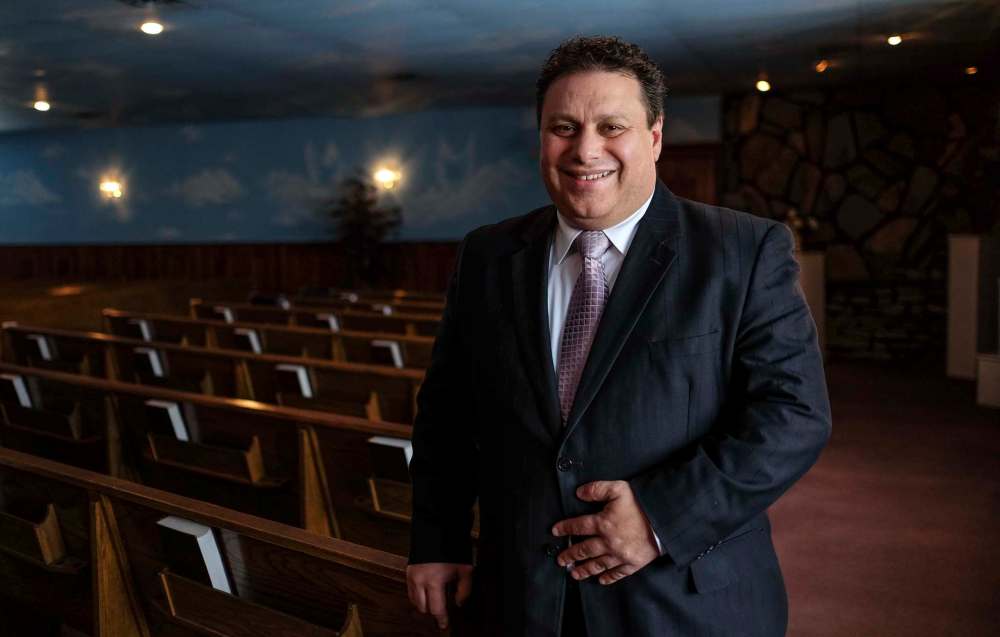
Nearly 11,000 people die in Manitoba every year. When it comes to afterlife options, cremation continues to grow as the most popular choice.
More than 60 per cent of Manitobans who died were cremated in 2018, Cremation Association of North America data show. But there is no record of how many cremated remains are unclaimed.
The province said it is unaware of the extent of the issue since funeral operators aren’t required to report such instances. However, as per provincial regulations, operators can dispose of unclaimed remains after two years.
Considering Vogiatzakis’s funeral home handles between 35 to 60 cremations every month, the unclaimed total since the business was founded in 1998 is minimal.
“Every one of those boxes in there is a person. And for me as a funeral director, it’s kind of heartbreaking to see somebody’s mom or dad or brother or sister or son in a room with a bunch of other cremated remains not being attended to.”
– Voyage Funeral Home and Crematorium general manager Michael Vogiatzakis
Despite being infrequent, he said it’s “mind-boggling” — especially when a children’s remains are left behind. The funeral home arranges cremation for children at no cost, while adult services are as much as $1,600. Fees are usually settled when families collect the ashes.
Vogiatzakis attributes some unclaimed ashes to cremation’s price tag, even though it’s more affordable than buying a cemetery plot, casket and burial services. Complicated family relationships, an increasingly secular society and people unsure of what to do with ashes are also likely causes, he added.
More than 30 years into his career, funeral director Lee Barringer said the problem isn’t a new one. Barringer, who has worked at more than half a dozen funeral homes, said he’s witnessed hundreds of unclaimed remains put in storage.
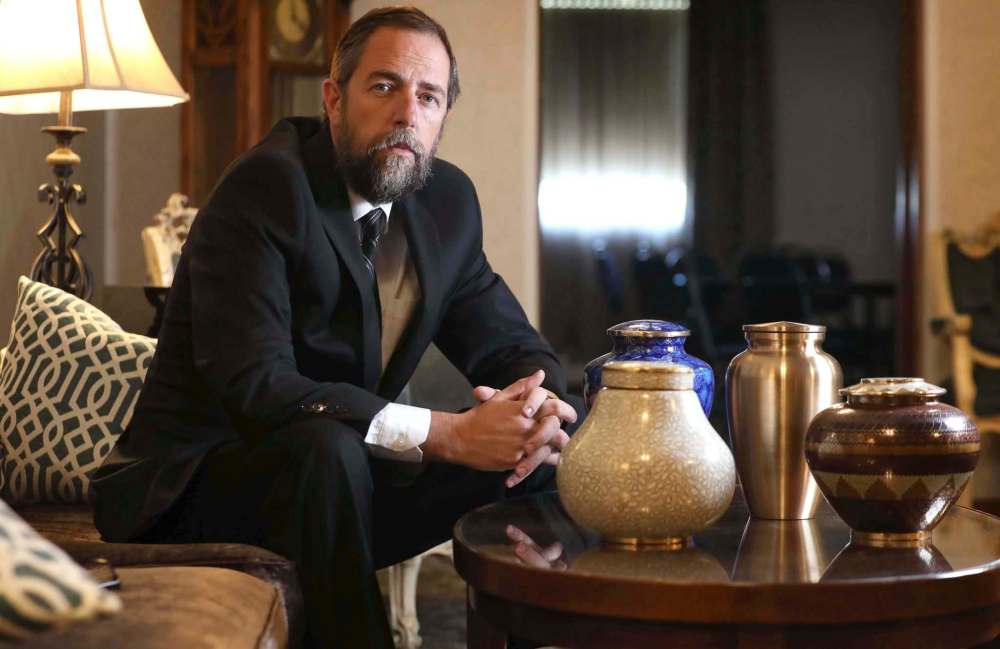
“What happens a lot of the times is that people don’t view cremated remains as human remains,” said Barringer, the general manager at Cropo Funeral Chapel.
There’s “a convenience to cremation” where people can put their pick-up on hold longer, he said, adding that Cropo Funeral Chapel makes repeated attempts to contact families.
“We don’t have a lot of death etiquette anymore,” said Kenneth MacKendrick, an associate professor in the University of Manitoba’s religion department who teaches a class on death. “We just don’t have rituals for [cremation]. We don’t know what we’re supposed to do.”
While certain religions like Judaism and Islam have elaborate traditions, they don’t support cremation, MacKendrick added.
“What happens a lot of the times is that people don’t view cremated remains as human remains.”
– Lee Barringer, general manager at Cropo Funeral Chapel
Meanwhile, there are more options than ever before when it comes to the afterlife (families can even pay to send ashes to space).
As of 2013, Manitobans can legally scatter cremated remains on unoccupied Crown land or water, including in provincial parks.
“Care must be taken to ensure that cremated remains are not scattered near drinking water or recreational water activities, such as swimming areas,” according to the province.
In order to encourage the respectful care of remains, families need to start talking more openly about their afterlife wishes, said Jennifer Gurke, executive director of Palliative Manitoba.
“We live in a death-denying society and so some people may not be prepared to take that next step in going and picking up the remains,” Gurke said.
She said that denial, in addition to overwhelming grief, are reasons for unclaimed remains.
To encourage pick-up, some funeral homes charge late fees. For every additional month Wojcik’s Funeral Chapel and Crematorium stores cremated remains, it charges customers $100.
Others, like the Aboriginal Funeral Chapel in Winnipeg, never dispose of any remains — even after the legal two-year storage requirement is up.
“You never know when somebody might want them all of a sudden,” said Lisa Holgate, the chapel’s funeral director.
The same goes for Voyage Funeral Home. Vogiatzakis said he’s had families show up to collect remains four years after arranging a cremation, a process that usually takes about three days.
maggie.macintosh@freepress.mb.ca
Twitter: @macintoshmaggie

Maggie Macintosh reports on education for the Winnipeg Free Press. Funding for the Free Press education reporter comes from the Government of Canada through the Local Journalism Initiative.
Our newsroom depends on a growing audience of readers to power our journalism. If you are not a paid reader, please consider becoming a subscriber.
Our newsroom depends on its audience of readers to power our journalism. Thank you for your support.
History
Updated on Saturday, August 10, 2019 11:42 AM CDT: Clarifies more than 60 per cent of Manitobans who died were cremated in 2018.

